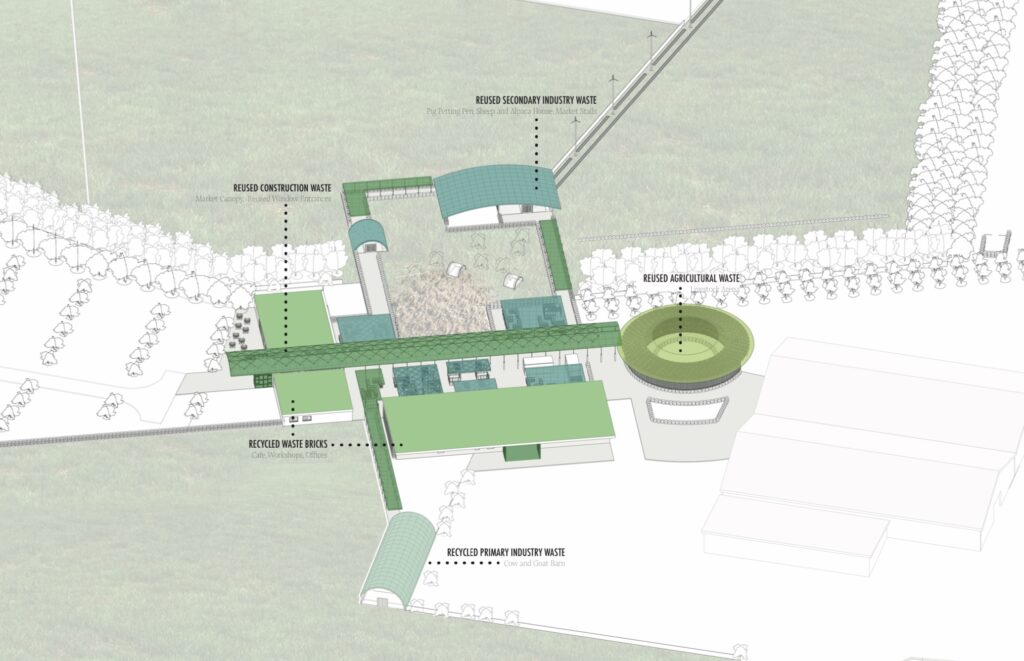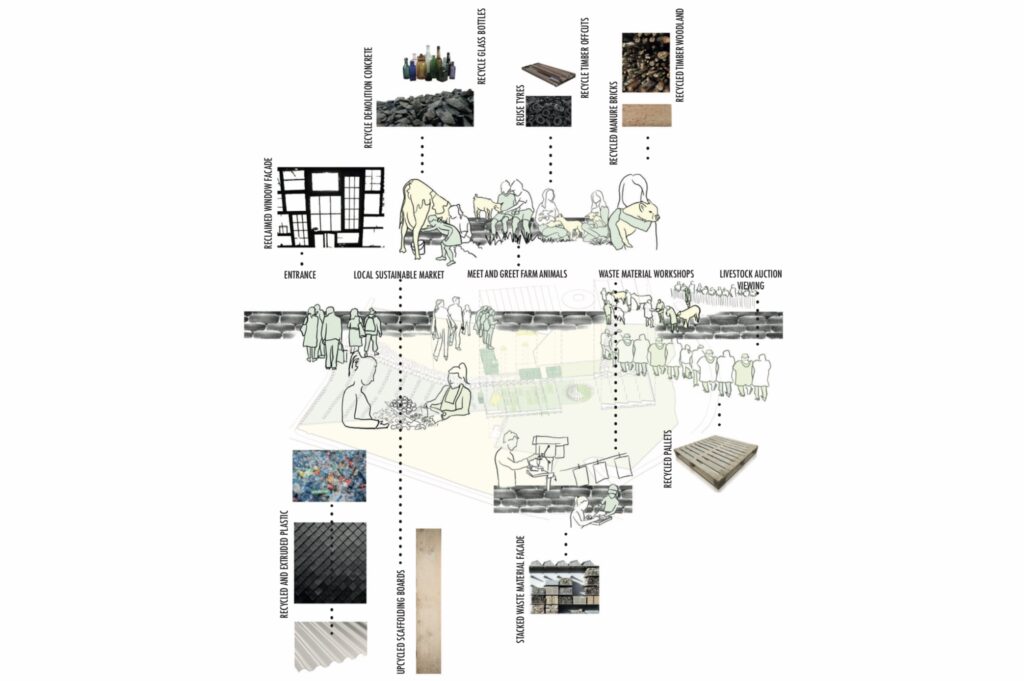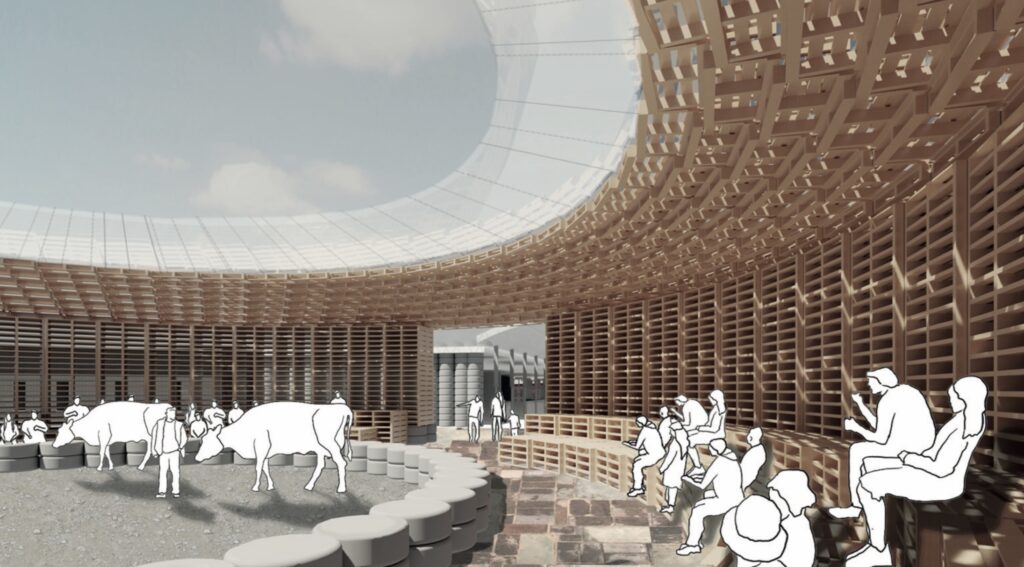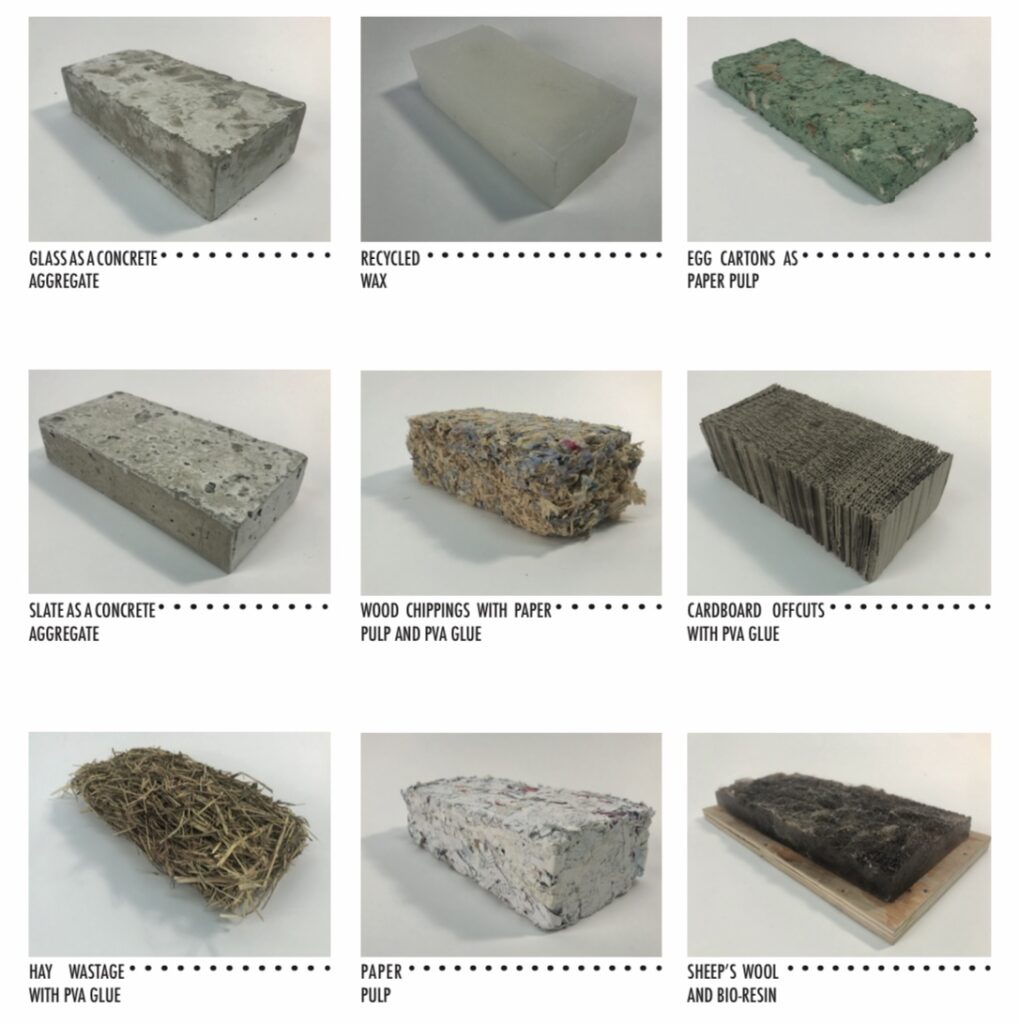“WASTE REFORMATION”
Traditionally, in the early 20th century, people would rely on their local communities for amenities such as food, farming, clothing etc. As technology has increased throughout the world, we have access to global materials and opportunities to shop elsewhere. With the climate crisis weighing heavily on the world’s metaphorical shoulders, it is our duty as makers to approach craft with the view of a more sustainable future for creativity.
This thesis will explore the role of craft in the global agenda to ‘make do with what we have’. The exploration of waste materials from local industries within the site context will comprehend a way of making with a low carbon footprint.
Through innovative use of local materials, different methods will be utilised to explore a way in which craft may be used to represent place through materials ‘as found’ by reusing, recycling, upcycling and downcycling.

Identifying structural tectonic and different approaches to material uses across the site.

The exploration of waste materials used in different programmatic functions

Perspective view of the livestock shows the arena, constructed from reused tyres and wooden pallets. This key space links the existing livestock market to the proposed farming market and provides a celebration of the agricultural trade.

1:1 studies of waste materials in the form of bricks allowed me to identify their structural ability in construction
CONTACT EMAIL: kmes96@gmail.com
LINKEDIN: https://www.linkedin.com/in/katie-mes-8ba827135/
Curated by: George Morgan
